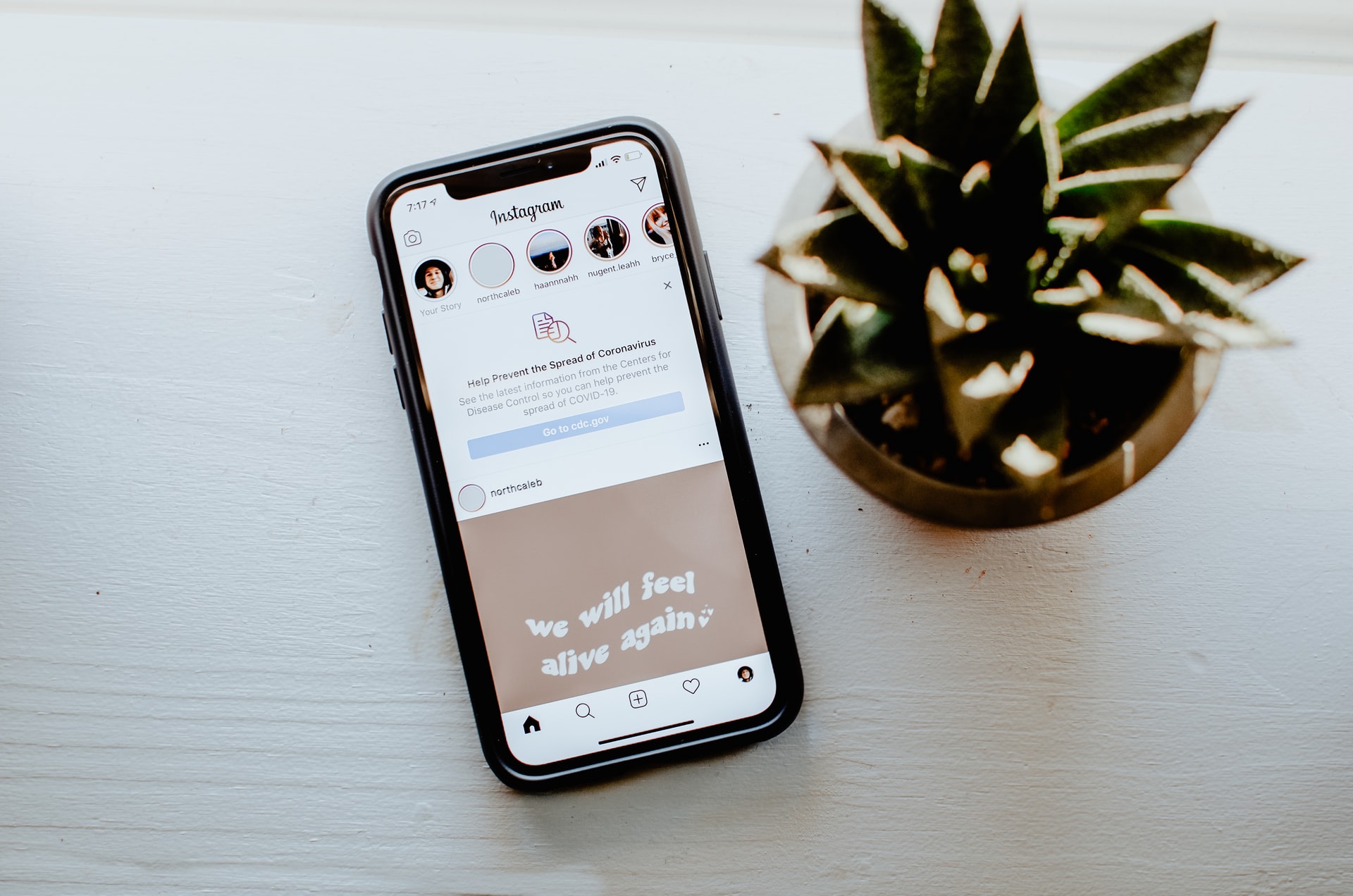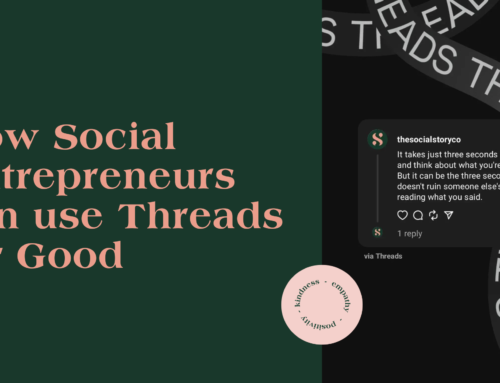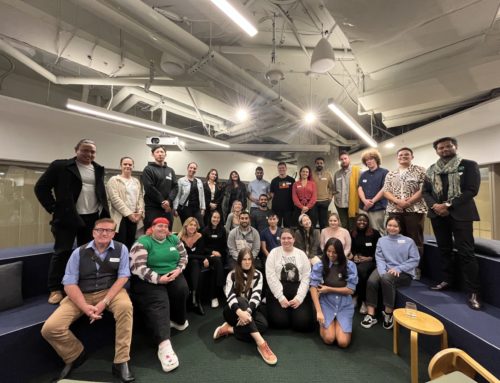Breakups suck. It’s a painstaking process of unlearning the hopes and dreams we’d placed on a person; a process of dealing with the hurt and disappointment and learning to be who you really are. They hurt, they make you overthink, you go back and forth between hope and anger. But we all make through it in the end, better, stronger, more sure of ourselves.
Breakups in the digital age are arguably harder. I imagine the good old days where you broke up with a guy and would run little chance of seeing them again. Now they’re all over your digital footprint, their name has made their way into your autocorrect, they’re watching your every story. Every post seems like a competition to say who’s winning the break up and having the better life.
So what on earth am I talking about here? How can the intricacies of moving on from a relationship – only made harder by social – have anything positive to come out of it? Well, like they say, it hurts until you learn something from it. And the lessons learned through the stages of digital breakup are more like the ways we should be using social media more consciously than you think.
We should be applying the same sort of mindfulness into everything we post, no matter if our ex is watching or not.
1. Your subtext speaks volumes
The cheeky thirst trap, the song lyrics you’re sharing hoping that they will see, the ‘left on read’ or the orbiting – don’t lie, we’ve all done it before. Beyond what we directly communicate, social media has created a whole new language that speaks volumes without any words.
This is a platform and language that we are fluent in. We might get away with claiming ignorance of how the algorithm works or what the fuck Tik Tok is used for, but this should be our strong suit. And so it should be no excuse that we should also be using the same sort of digital literacy in all our communication online.
So when you post something to your social media, what are you saying beyond the image and the caption? When you share a post, are you aware of how that might look to someone else? Are you posting it just for your ex to see or are you conscious that your boss might see it too? Recognising the messages we send beyond the caption and who might see it and understand should be a consideration with everything we post. If you can put the same care in how you post after a breakup, you can put it into all your posts.
Every like can be seen as a condoning of a comment; every emoji, a message in itself. Use the same digital literacy and consideration for what the post might mean with every piece of content you put out. We should be applying the same sort of mindfulness into everything we post, no matter if our ex is watching or not.
2. Disengage to start disentangling
So here comes the algorithm jargon. Social media platforms work to show you the content they think is most relevant from you. Your best friends and yes, even a boyfriend will always appear right at the top of the feed because you’re most engaged with them. So what happens when you don’t want to see them anymore? Stop engaging. Every action – from a like, to a story view – is considered interest in the eyes of the algorithm. So stop checking in on them. Or better yet, unfollow them altogether.
Being careful to curate the feed into a place where it works to empower, inspire and inform you is the best thing you can do to not only get over your ex but have a more well-rounded view of the world through your social.
3. Be wary of the highlight reel
It’s all too easy to only focus on showing off all the good things that you’re doing. I mean who doesn’t want their ex to think that they were always better off without them? And perhaps that’s not always the worst thing – particularly in these times. Some six years ago, I participated in a ‘100 happy days’ challenge, posting a picture every day of something that made me happy. The challenge reminded me to find joy in the simple things like my dog or the sunshine or my dog again (I won’t deny that most of my pictures were probably just different angles of my dog).
But then again, it gave me a lot of pressure to be doing more fun and exciting things so my life looked more interesting – even just ‘for the gram.’ And that’s neither helpful for me nor the people who are following me.
Social media has undeniably fostered heightened levels of comparison and FOMO. More so than any medium, these images are constantly glued to our hands, thousands upon thousands flashing before us every minute of every day. Whether it’s an influencer looking picture perfect in a new bikini, our friends already resuming holidays abroad amidst the pandemic or an ex who dares to have fun without you, we fall into these scary, psychological traps of what our life should look like.
Snap out of it. This is your reality check. If we’re guilty of showing just the good bits, we have to recognise that others are doing the same as well. We cannot compare how we feel internally with how someone else has filtered and curated into an outward image. You don’t know what the whole story is and overthinking it won’t help either. So if you haven’t already unfollowed all these counts, at least take a break. Set your phone aside for a day and take the moment to practice a bit of self-care. You’ve earned it.
4. When it’s time to let go, it’s time to do you
At some point, we build ourselves back up and we start to move on. We check on them checking on you less, we don’t post just for their benefit and we learn to embrace a new world without them. Fighting the pain won’t make it go away any faster, we just have to surrender and trust in the process of healing. In the same way, constantly practicing the conscious consumption of social media will make us better users and less susceptible to its pitfalls.
The language of subtext becomes second nature and we’re more comfortable with how things may be understood online. We learn more about the mechanics behind the algorithm and how we can use it in our favour. We recognise that we can’t just lament the evils of social media but accept that it’s here to stay and instead start to see what we can do positively about it. But most importantly, we start posting for ourselves.
Ultimately, social media is still a fantastic place to tell your own story. Heck, it’s at the core of what this business is all about. Showing up authentically on these platforms can be a truly powerful thing. When people share their stories, our eyes have been opened to injustices that still exist in the world, we’ve been inspired or find hope in dark times. We find common ground and perhaps feel more empowered in our own identity. So own your story and tell it well.
But most importantly do it for you. Want to humble brag about some new skills you’ve picked up? Go for it. Think you’ve taken too many pictures of your dog, but seriously this one, it’s using a great filter that just makes him look even cuter, go for it. It is your feed, it is your life, it’s your time to just go and live it – whether or not that ex is still watching.
Header photo by alex bracken on Unsplash






[…] structures – bringing ruin to long-standing institutions of print media. It has created new languages in which we communicate with emojis or subtweets. It’s sparked seismic shifts in the way we talk about sexual […]